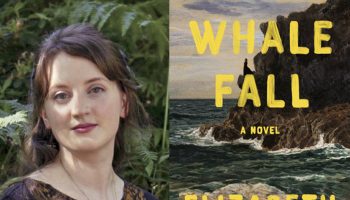
Susie Anderson
Staff Writer
In Week Nine, participants in the Chautauqua Writers’ Center’s workshops will learn to crack open the case in mystery fiction writing and break the rules while generating poetry. Ellen Crosby will lead “Howdunnit” and Alan King will lead “Creative Alchemy with Object Magic” and the two will read at 3:30 p.m. Sunday in the Hall of Philosophy. Both of their workshops are available through Special Studies.
For Crosby, the author of 19 mystery fiction novels, the writing process is one that only gets better with time.
Crosby was an economic adviser at the U.S. Senate, a freelance journalist for The Washington Post, and Moscow radio correspondent for ABC News. When she moved to Moscow, she decided to try novel-writing.
“How hard could it be?” Crosby said. “It’s hard. Very hard.”
When Crosby first began writing a novel, she rewrote the first chapter 40 times over. That “learner book” is now “fertilizing gardens in England.” However, that first attempt set the groundwork for Crosby’s current 18 published mystery novels. She serves on the national board of Mystery Writers of America and her books have been nominated for a Mary Higgins Clark Award and the Library of Virginia People’s Choice Award.
Beyond writing a grocery list or an email, Crosby wants workshop participants to get in the consistent practice of writing.
“You have to look at it like playing a musical instrument or practicing a sport,” Crosby said. “If you want to write a publication, you need to work at it.”
In her mystery fiction workshop, Crosby will lead participants from the spark of their idea, to character and world-building, to preparation for the business of the writing world. She wants participants to work toward the goal of NaNoWriMo, or National Novel Writing Month, in November.
“I want everybody to walk out of class with a notebook that has pages bristling out of it and they’re going to be so jazzed up they will do NaNoWriMo,” Crosby said.
Outlining steps in the workshop, Crosby looks to build momentum for novel-writing among her participants. The best thing to do when they don’t feel like writing, Crosby said, is to write.
“It’s not fairy dust settling down on their shoulders every day,” she said. “What do you do when you don’t feel like writing? You write.”
By the end of her workshop, Crosby wants participants to hit the ground running with writing momentum in November.
“Here are the tools,” she said. “Now go do it.”
On Sunday, Crosby will read from the 13th installment of her “Wine Country Mysteries” series, titled Deeds Left Undone. She will be joined by poet and award-winning documentary filmmaker Alan King.
After taking many workshops himself, King has noticed a pattern.
“The ones that stick with me are the ones that have fun,” he said.
While at Howard University, King’s creative writing professor had students pick an object out of a hat and chew it — literally.
“While we were chewing, we had to close our eyes and concentrate on the sound and see if there was a memory triggered by the chewing,” King said.
The objects in question were Tostitos chips. The practice as a creative approach to generating writing resonated with him. King is a Caribbean-American poet and author of two poetry collections, a chapbook and has earned multiple Pushcart Prize nominations and Best of the Net Awards. When talking with people beyond his literary sphere, King has found that many of them are deterred by the word “poetry,” a result of unpleasant childhood lessons and the stress of memorization.
“I think that comes from people getting instruction that’s not engaging, or not fun,” King said. “In my workshop, I’m trying to do the opposite.”
From playing a game that generates metaphors to exploring the lives of everyday objects, King wants to bring participants into an exciting and engaging workshop experience.
“If we start with a game and then a writing exercise that comes on a tail end, then people’s minds are already primed to be creative,” King said. “When we start going through poems, they’re ready.”
By leaning into generative activities and reading from great poets, King wants participants to feel curious and inspired by the breadth of options in the form.
“Part of the learning is seeing what people have done before,” he said. “It opens participants up to wonder, ‘Oh, you can do that? Maybe poetry isn’t so distant and laced-up after all.’ ”




